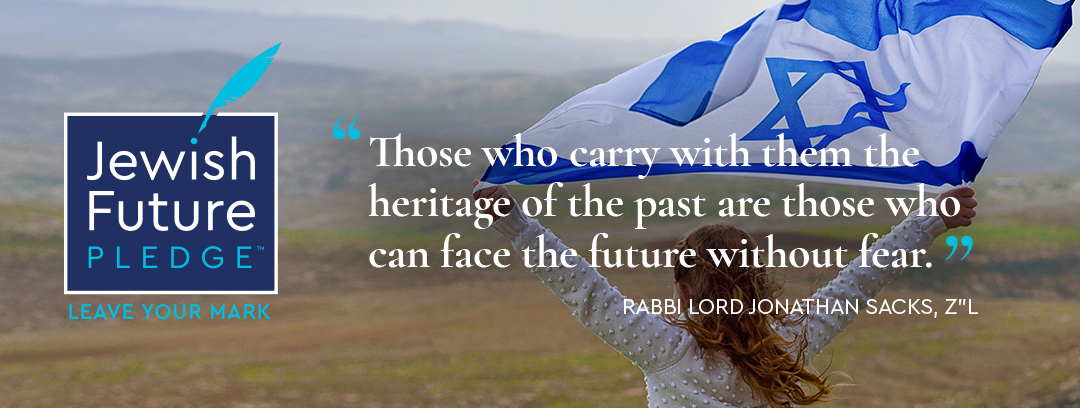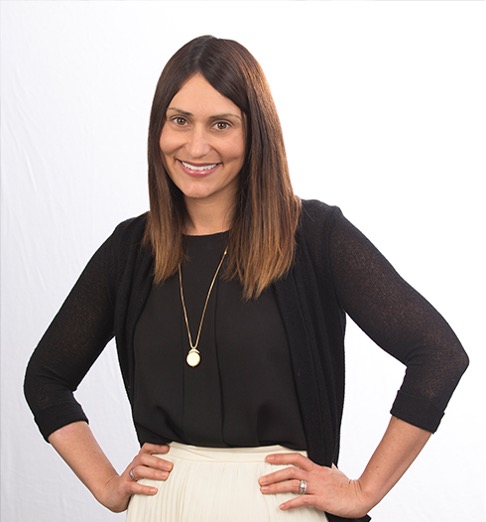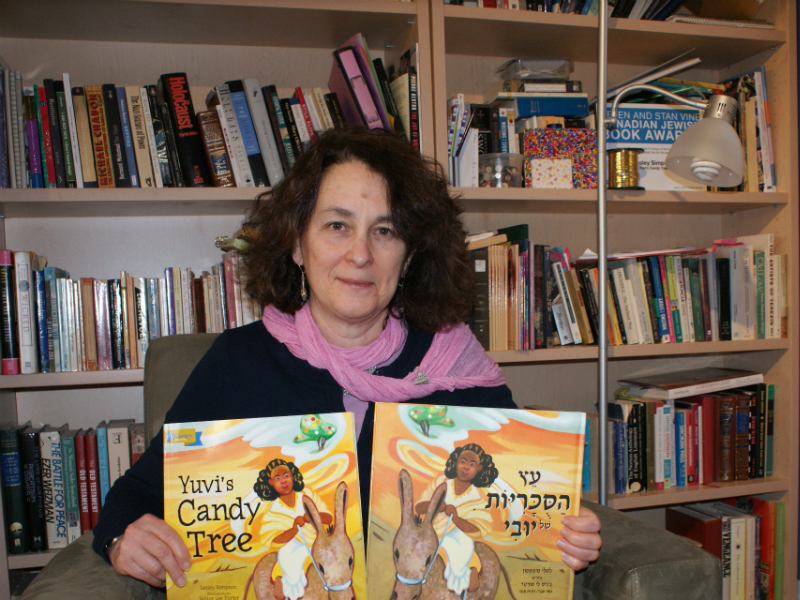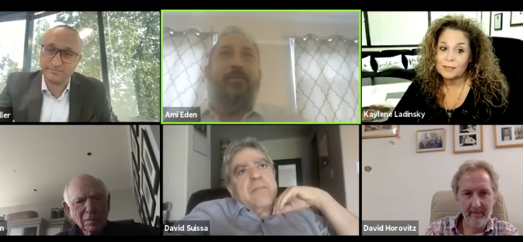
Shana Tovah! Welcome to the September edition of the Jewish Future Pledge newsletter. The Jewish Future Pledge family hopes that the coming year is full of health, happiness, and abundant blessings.
Click here to take the pledge. This edition includes: - Young Jewish professional reflects on why the Jewish Future Pledge sends an important message, no matter your age or net worth.
- Ethical will expert Lesley Simpson shares the moving Jewish tradition behind writing an ethical will for your loved ones.
- Everything new and newsworthy at the Jewish Future Pledge, including Atlanta Jewish Times coverage of our latest webinar, “Jewish Journalism and the Jewish Future.”
Pledger Spotlight: Alisha Tischler  What did you think when you first heard about the Jewish Future Pledge and why did you ultimately sign? What did you think when you first heard about the Jewish Future Pledge and why did you ultimately sign?
When Mike first approached me about the Jewish Future Pledge, I thought the idea was brilliant and much needed. As a Jewish communal professional, I am well aware of the challenges the Jewish community faces as younger generations identify and affiliate differently than their parents and grandparents. But my husband’s and my first thought when he asked us to sign was: "We are only in our 40s… we don’t have a trust fund… and we have just started raising a family. What help could my signature possibly provide?" But then we realized what should have been obvious. The pledge isn’t about the present. And it’s not even about how much my children will ultimately inherit. It’s about the collective future I want to see and the role I hope to play in building it. What conversations have come up since you have signed the pledge? The first conversation I had was with my husband. We have spent a lot of time talking about our values, our goals and plans for community involvement and the importance of raising our children with a strong Jewish identity. But we’ve never had a reason to talk about our plans for legacy giving. Signing the Jewish Future Pledge was an opportunity for us to take pause from the day-to-day slog and have a meaningful discussion about what we hope, through our children, our legacy will be. What is one Jewish value you carry with you in your daily life? There are so many Jewish values I aspire to uphold – kehillah (community), chesed (caring) and kavod (respect) to name a few. But the one that really motivates me and guides many of the choices I make is the individual responsibility of tikkun olam. Judaism teaches us that we each have a duty, not just to repair the world, but to improve upon it. We don’t have to carry the burden alone and we don’t have to finish the job. But that also doesn’t mean we are exempt from doing our part, no matter how seemingly small it may be.
How To: Pass On Your Legacy in an Ethical Will Written by Lesley Simpson, who recently defended her PhD dissertation on Jewish ethical wills and creative forms of Jewish memory. She is working on a non-academic book about the tradition, tentatively titled "My Grandfather’s Scissors". Written by Lesley Simpson, who recently defended her PhD dissertation on Jewish ethical wills and creative forms of Jewish memory. She is working on a non-academic book about the tradition, tentatively titled "My Grandfather’s Scissors".
Join Lesley for a free class on October 14 at 1pm EST, offered through the Florence Melton School of Adult Jewish Learning, on ethical will writing 101, introducing a repository of these letters, and illuminating how powerful these modes of Jewish memory can be for both the writer and the recipients. Register here. How would you like to be remembered? Jewish civilizations include a letter writing tradition called an ethical will. An ethical will is not a legal document, but a letter of non-material legacy which can be cherished or ignored. Although an ethical will is not legally binding, it is a powerful message. Over centuries, many Jews have taken the time to write ethical wills. Whether they are religious, cultural, or secular, rich or poor, what unites them is a sense of purpose. When the writer Dvora Waysman made aliyah from Australia to Israel, she wrote her children an ethical will, explaining that she was giving them something that more powerful than money — the opportunity to become Israelis. Yiddish writer Solomon Rabinovitch, known by the pen name of Sholom Aleichem, asked to be remembered with laughter. In his ethical will, he asked his descendants to gather on the anniversary of his death and read the “merry stories” from his repertoire that made them laugh out loud. More than 100 years later, his family is still laughing out loud. Consider writing your own ethical will so that those who come after you know what was important to you. If you’ve already signed the Pledge, tell your descendants why. Have a look at our resources to find tips on writing an ethical will.
New and Newsworthy 
 The Jewish Future of Jewish Journalism, Atlanta Jewish Times “Jewish Future Pledge hosted the international event over Zoom on August 16, to discuss the future of journalism with Jewish ‘heavy hitters’ of the industry... ‘We know that Jewish journalism is extremely critical to the Jewish community and has great insight into where we may be headed, by nature of reporting on so many facets of Jewish life,’ [Mike] Leven said. ‘The aim of this panel was to share this message with our audience.’” Watch the full recording of the webinar here. | 